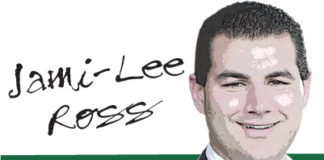
As the Easter and Anzac weeks are almost at an end, the Prime Minister’s dumping of a capital gains tax proposal already seems like old news.
But what isn’t old news is the structure of our Parliament, where smaller political players can have great influence that seems out of proportion to their size.
In this case, one component part of the Government, New Zealand First, effectively killed the capital gains tax recommendation, even though Labour and the Greens were entrenched in their support for it.
Winston was right to oppose a capital gains tax. The policy was to be revenue-neutral, meaning implementing the tax would have brought in no extra income for the Government.
Why anyone would want to make our relatively simple tax system more complex for no appreciable gain is something I can’t understand.
The uncertainty it would have created, as well as the anti-investment signals it sent, also weren’t good for our wider economy.
But the more important political point worth observing is the high level of influence a relatively small group of voters can have on policy outcomes. This is nothing new.
For six of the almost nine years John Key walked the corridors of Parliament, he governed with effectively a one-seat majority. At any point in time a single MP could hold up policy, or win gains for their local electorate.
Similar situations happened to Helen Clark and Jenny Shipley before him.
We hardly noticed this though because Key was a master of political management, the likes of which the centre-right of politics now sorely misses.
Our electoral system puts single MPs or smaller parties in prime position to support their constituencies. New Zealand First is now sticking up for the people who voted for them.
Attempts to change our electoral system failed in 2011, so this phenomenon won’t differ while we have MMP.
Voters at the next general election will decide which individuals or political parties are able to deliver funding or policy wins for the people they represent. This right of voters can be used wisely and strategically.
Jami-Lee Ross, MP for Botany









